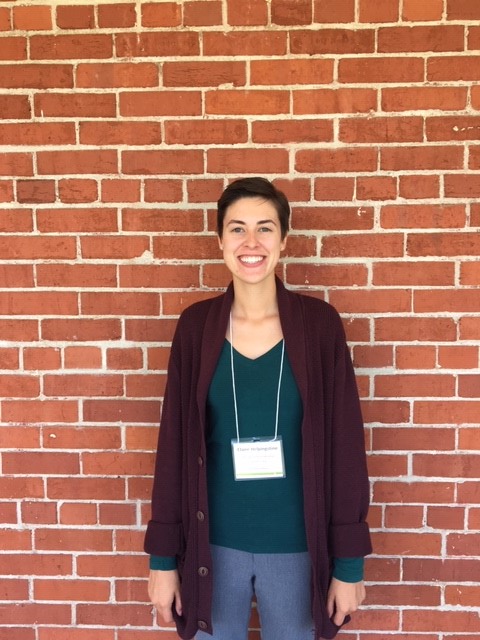The Enduring Value of Simplicity: Reflections on the FUTURES Campus Leadership Program

If someone were to ask me to pick one word to summarize my experience as a fellow in the FUTURES Campus Leadership Program, I think that I would choose the word, bittersweet. I am certain you are thinking, “How unoriginal,” and I cannot help but to agree. Nevertheless, I have given this much thought, and sometimes, the most seemingly unoriginal thing is also the perfect thing. Let me explain: A friend once told me a story about overcoming the largest hurdle of their dissertation project with an everyday kitchen utensil. To put it briefly (and in a language far more palatable), my friend was attempting to heat an awfully expensive chemical solution, yet every attempt resulted in a small fire and reprimand from my friend’s advisor. After coming up with a number of high-tech solutions all to no avail, a research assistant’s mother suggested the use of a basic kitchen whisk. Lo and behold, the fires ceased, and the project was able to continue on without a hitch.
In many ways, this short anecdote is illustrative of the mental traps that all of us, not just those in academia, can fall into. In our society, complexity tends to be inextricably tied to value. However, the most complex or technical solution is not always the most impactful, nor is it always the most valuable―Futures Without Violence understands this entirely.
Bringing together a small group of graduate students from all over the United States who are committed to addressing sexual violence on their campuses may not appear to be innovative, but it is. FUTURES saw our potential to make a change, and equipped us with a ticket to what seemed like a never-ending supply of resources for our communities. But most importantly, they provided us with a network. For many of us who may feel alone in advocating for sexual assault prevention, education, and improved services for victims on our campuses, the FUTURES campus fellows program forms a network that is crucial to continuing the fight. Throughout duration of the program, fellows were not only able to share valuable tools and resources, but we were also able inspire and encourage each other, celebrate our achievements, and provide support during setbacks.
Much of my work as a campus fellow could not have been completed without this network, though equally significant were the supplies that were afforded to us during the program. Two of the most valuable during my time with FUTURES included the ThatsNotCool curriculum, and as well as the Caring Relationships, Healthy You LGBTQ safety cards.
Due to my work with a local NGO for adolescent girls who are victims of sex trafficking, the information on teen dating violence piqued my interest. While a number of groups are offered to clients at the organization, issues surrounding healthy dating had predominantly been limited to discussions between the client and her case manager. Upon my return from the campus fellows orientation, I was able to discuss implementing a group on teen dating violence using the ThatsNotCool curriculum with the director of the organization. While the idea was initially tabled, in February 2020, an extraordinarily successful three-week teen dating violence group was held with FUTURES curriculum used as a supplementary guide. Plans for future groups are in the works, which will hopefully lead to a permanent group on teen dating violence at the NGO.
Back at my university, I was able to begin to forage a relationship with my institution’s LGBTQIA+ Center. With the majority of the discussion surrounding sexual violence on campus being focused on those who are not members of the LGBTQIA+ community, it was important to make FUTURES’ LGBTQ specific Caring Relationships, Healthy You safety cards available to our student body. After a few conversations with the associate director of the Center, the safety cards were placed in the front office and passed out at campus events. Such a simple tool ensured that members of the LGBTQIA+ community attending our campus were not only included in the discussion, but also received information that could be critical to their wellbeing.
My major goal during my time as a campus fellow was to hold a Lunch and Learn series for Women’s History Month, and here is where it becomes bittersweet. The room was booked, flyers were circulated, and sent out on graduate and undergraduate student listservs. The Lunch and Learn speakers were confirmed and comprised of a discussion of Hispanic college students’ preferred sexual coercion intervention approaches, non-consensual porn in the US, and commercial sexual exploitation in South Florida. Then COVID-19 occurred. This global health crisis forced us indoors, away from our friends, family, and peers. Universities and businesses closed, and while we may be in the process of reopening today, we are uncertain of the future that is to come. For those of us who are committed to social justice, our work may feel especially daunting right now. However, we must remember that some of the simplest things can make a big difference. While our solutions may not be in a drawer in our kitchens, they may be found in our networks, our community organizations, or even in a safety card.





